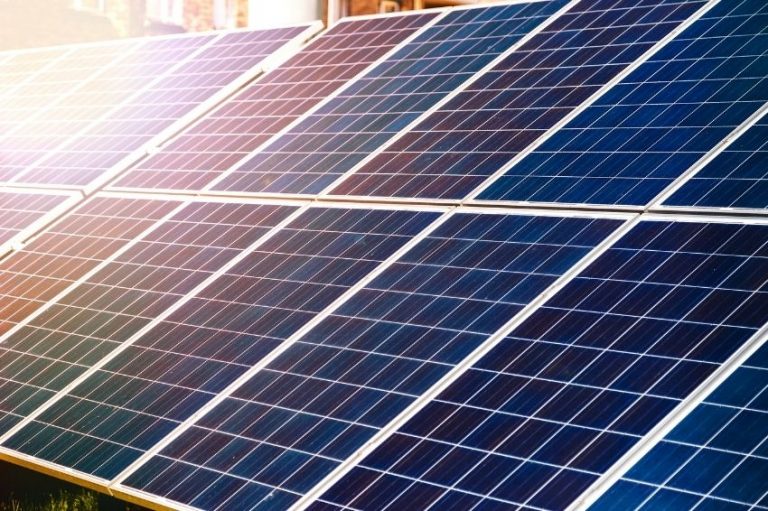In the midst of the worst historical water crisis faced by the country, which is expected to continue into 2022, we can undoubtedly confirm that decentralization for electrical generation is the path to sustainable development.
Allowing fairer and more transparent rules by empowering consumers to produce their own energy from renewable sources will generate positive impacts on the economy, society and the environment.
Completing 10 years in 2022 of the first Normative Resolution – Resolution 482 – which allows small and medium-sized consumers to generate their own energy, we found that the exponential growth curve was only in the last four years and only reached approximately 1%. This in a universe with more than 82 million UC (Consumer Units).
O PL 5829, approved this year in Congress, tends to become law shortly. It will allow, among several renewable sources, more inclusive photovoltaic solar energy, guaranteeing legal support for Brazilians who wish to generate their own energy.
The PL creates rules for a more balanced regulatory environment for those involved in the segment of mini and micro generation of electricity, providing the first Legal Framework for DG (distributed generation) in the country.
This Legal Framework should encourage new business horizons and an energy transformation. Maintaining some rules already in practice, it improves new methodologies and evolves our current regulatory scenario, even enabling the local energy concessionaire to acquire from the owner of the mini/micro plant the credits in kWh generated and not compensated in the load or in another UC that participates in the SCEE (Electric Energy Compensation System).
We can see, as a model of what is happening in the world today, what could happen in Brazil if we take longer to put the GD Legal Framework into practice. The astronomical increases in the prices of coal and fossil fuels, to keep thermoelectric plants operating, are a great chaos already announced.
As an example of this scenario, we have China, the second largest economy in the world, which is going through a serious energy crisis because of its dependence on coal, leading to power cuts in factories and homes due to a shortage of the material. The situation is impacting its economy, with large industrial companies experiencing production losses of up to 30% per day.
Experts are already predicting a rise in the prices of products destined for end customers, as Chinese industry, responsible for consuming 59% of the country's electricity (more than all homes, retail stores and offices combined) is expected to pass on the price the increase in the cost of energy to consumers, such as Brazil, since we are major exporters of commodities from the Asian country.
Despite the mega plan announced this year by the Chinese government to migrate energy consumption to renewable sources, with this crisis, China is already considering increasing the consumption of polluting sources to meet the population's demand for energy in winter.
And it's not just China. In Europe, NG (Natural Gas), an energy resource so valued for its low production of pollutants, is now the villain of the increase in energy tariffs. Since the beginning of this year, natural gas has already increased by 600% on the European continent. It is due to a harsh winter and a summer that recorded very high temperatures, resulting in high consumption by the population, which is a large user of NG.
The global energy crisis is expected to increase demand for oil by 500,000 barrels per day (Barrel per Day – BPD) and could boost inflation and slow down the global recovery from the post-Covid 19 pandemic, according to analysis by the International Energy Agency (IEA).
In this way, we see a vicious circle being created, in which we need to generate energy from polluting sources, at the same time that we feed the climate problem with GHG (Greenhouse Gases).
It seems like a fictional film, but it is something that is happening today and will impact our future. We are already talking about a fleet of electric vehicles in Brazil, which should reach 180 thousand units by 2030, according to data from EPE (Energy Research Company).
But who will be able to charge so many electric vehicles? Where will the energy for this come from? And, most importantly, how much will this cost the consumer? Ultimately, the price of electricity can be the biggest impediment to “filling the tank”.
Now, if we have the means to generate and sell energy in our own homes, to distribute it on the electrical grid, as proposed in PL 5,928, we will create thousands, if not millions, of generating plants, making energy production and transmission cheaper in the country.
In other words, each residence, factory plant, building, college, hospital and business can become a micro energy plant and transmit the energy generated to the neighbor, for example.
There are many factors that are leading cities and countries to invest in photovoltaic solar energy, dramatically increasing interest and, consequently, consumer attitudes towards investing in their own energy generation.
The adoption of investments in solar energy projects individually by consumers, companies and organizations is, without a doubt, one of the main disruptive attitudes with an exponential contribution to actions against climate change. Because by contributing to minimizing carbon dioxide (CO2) emissions as much as possible, we avoid generating GHGs through the production or consumption of electrical energy by thermal plants.
In a global transformation of concepts, also accelerated by the pandemic, photovoltaic solar energy will remain firm through the coming eras of transitions, adding to our planet with a much greater purpose.
In addition to these factors, which led Brazilians to take a closer look at various aspects of daily life, there is also an increase in electricity tariffs. Since 2015 it has risen by more than 100% and has been added to the biggest water crisis faced by the country in the last 91 years, making consumer bills even more expensive.
On the other hand, the costs of implementing solar energy projects in the last five years have fallen by approximately 50%, increasing the economic attractiveness of solar energy generation. Every month, week, every day, Brazilians always have good reasons and are more confident in generating their own energy from a renewable source.
We ended the month of August this year with the Minister of Economy announcing continuous increases in extra fees on electricity bills in the coming months, commenting that “there is no point sitting around crying”. Meanwhile, the President asks the population to turn off a light in their homes “to save energy”.
Recently approved by the Senate, the PL 2015/2021 allows the inclusion of the value of acquisition and installation of photovoltaic solar systems in the property through real estate financing within the scope of the SFH. These are major advances, in “homeopathic doses”, for an energetic and economically inclusive transition.
There is no doubt that, soon, many Brazilians will invest in their energy independence through their own generation and battery storage. It's only a matter of time.
We should have an energy disruption following countries that have already adopted photovoltaic solar generation as the energy of the future, being the only one that allows democratizing access to energy.
This is because photovoltaic solar energy, due to its modularity and rapid implementation, is the only way to enable the mass adoption of own generation of electrical energy from a renewable source. Whether in homes, businesses or any type of establishment in large populated centers.
It thus allows, in the medium and long term, greater independence from centralized generation. A good option, since we already have hydroelectric plants threatened by water crises and thermal plants, which are a source of high GHG emissions, generating harmful impacts on society and the environment, in addition to large losses due to the distances to energy consumers .















